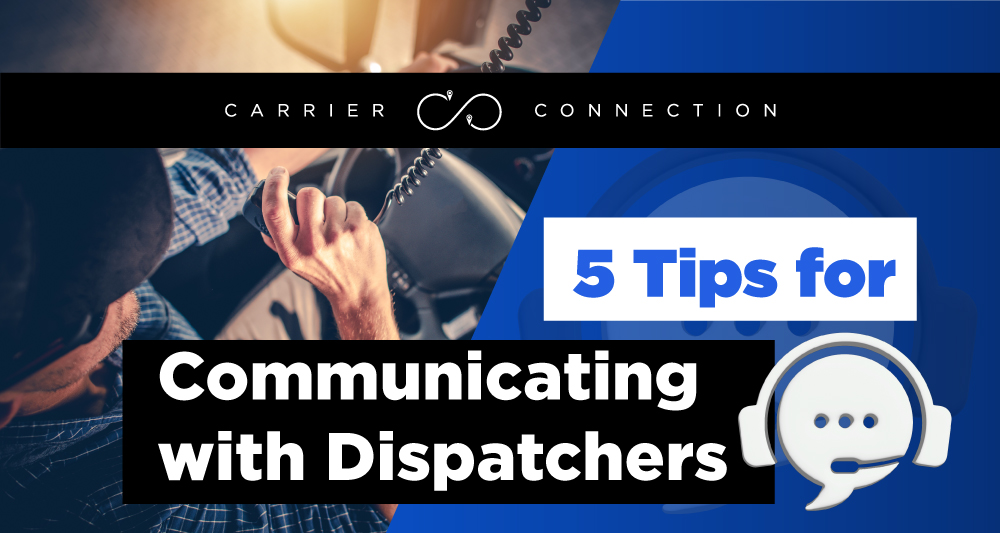![]()
A recent study found that miscommunications cost small companies an average of $420,000 per year. That’s a lot of dough over wasted words.
In trucking, communication is everything. If a route isn’t communicated correctly, the results can be wasted time and miles for carriers.
To help your trucking company prevent miscommunications and save money, here are a few tips to help you om communicating with dispatchers.
-
Notify your dispatcher of delays
Delays can take many forms: mechanical issues, weather, and changes to your route are bound to slow you down at some point. When a delay comes, be sure to alert your dispatcher immediately.
By keeping your dispatcher in the loop, you can ensure that they have the most up-to-date information for the best solutions. The faster an issue is resolved, the less costly the issue will be.
-
Provide regular check-ins
Work with your dispatcher to establish a routine for check-ins. If you’re able to give your dispatcher an update every 500 miles, for example, there will be little room for error in the progress of the route.
Even if a carrier is only a short distance off the most efficient path, this can mean huge costs in fuel and maintenance in the long run. Trust your dispatcher to steer you right through frequent communication.
-
Be proactive in anticipating delays
In the same spirit of communicating delays to your dispatcher, you’ll be better off in getting ahead of them.
For example, if you see signage for working conditions or road closures in the coming miles, you’ll be wise to alert your dispatcher. If you’re quick enough, your dispatcher will be able to coordinate a solution to mitigate delays.
By being alert and proactive in reporting delays, you can save huge in avoiding slowdowns to your routes.
-
Ask for clarification
We’ve all been in a situation where we’ve asked, “What was that?” four times, still don’t understand what is being said, and then respond, “Yes, okay, got it” and accept our fate. It’s a terrifying place to be.
When communicating with the dispatcher, no matter how many times you need to ask, always seek to understand the route in perfect detail. Even if a portion of the route seems unclear, it’s still worth clarifying.
A moment’s misunderstanding could amount to miles of mistakes. On the flip side, a quick clarification could mean a giant difference in cost savings.
-
Maintain a professional tone
Truckers deserve to be treated professionally—but so do their dispatchers. When it comes to being a respectful person, it takes one to know one.
A little respect goes a long way. As you develop a rapport with your dispatcher, you’ll be more comfortable communicating news—good and bad—and prevent costly miscommunications.
When considering ways that you can expand your business, good communication could be the $420,000 difference. By being consistent, clear, and respectful in your communications, you can save your dispatcher a headache, and your company a chunk of change.
The England Carrier Services (ECS) division offers various services for carriers ranging from maintenance to support. As ECS members, carriers have access to nationwide discounts on fuel and tires from dedicated team members committed to finding the best price. ECS also provides factoring services with benefits such as same-day funding to a bank account or fuel card. These options allow carriers the freedom to focus on growing their business while saving time and money.



